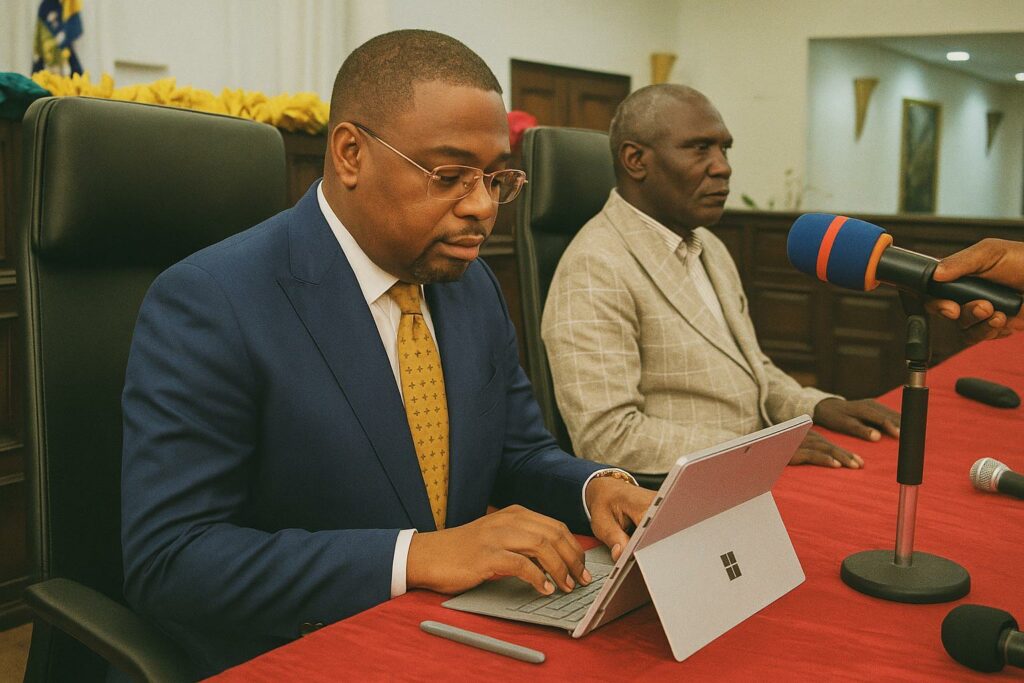A ceremonial imperative with concrete implications
The Ministry of Urban Sanitation, Local Development and Road Maintenance has summoned municipal authorities to an operation of unusual scope starting 5 July. On the surface, the objective appears straightforward: remove informal stalls, derelict vehicles and uncollected refuse from avenues, markets and roundabouts. Beneath the civic exhortation, however, lies a political calendar that offers the campaign its momentum. The Republic of Congo will celebrate the sixty-fifth anniversary of its independence in August 2025, and for a government keen to exhibit administrative capacity, public order and aesthetic modernity, the capital’s physical environment remains an unavoidable stage set.
Officials describe the initiative as ‘exceptional’, a qualifier pointing both to its intensity and to its symbolism. Minister Juste Désiré Mondelé’s pledge that “Saturday there will be no excuses” signals a measured readiness to couple persuasion with coercion, a method not uncommon in urban renovations across African capitals. Comparable exercises preceded milestone events in Kigali before the Commonwealth Heads of Government Meeting and in Dakar prior to the Youth Olympic Games, illustrating how ceremonial diplomacy and spatial governance have grown increasingly intertwined.
From episodic clean-ups to policy continuity
The July mobilisation revives the spirit of the 2023 campaign, “Ensemble, gardons nos villes propres,” which successfully cleared arteries only to witness a gradual return of informal commerce. The pattern is instructive: temporary successes risk dilution when enforcement wanes or when economic necessity drives traders back to lucrative curb-side locations. The new operation therefore emphasises continuity. Municipal police units have been instructed to inventory abandoned vehicles and trace legal owners, while market committees must maintain weekly monitoring reports. By anchoring responsibility in local governance structures, the ministry seeks to transform what was once a punctual gesture into a routine of urban hygiene.
Institutional coordination and civic mobilisation
Operational success will hinge on the relationship between state institutions and citizens. Congo’s administrative architecture assigns public-space management to a mosaic of entities: town halls, police prefectures, the Agence de l’Environnement et des Espaces Verts and, in transport corridors, the Ministère de l’Équipement. Mondelé’s circular letter instructing mayors to ‘act with diligence’ implicitly recognises this fragmentation and attempts to forge a common doctrine. Diplomatic observers note that the tone of partnership—”we will proceed to a pedagogical descent”—aims to pre-empt perceptions of unilateral state action.
Public communication also leans on the vocabulary of civic pride rather than punitive threat. Radio Brazzaville has opened its morning segment to civil-society spokespeople urging residents to view clean streets as a ‘visiting card’ in an era of increased regional tourism. In a televised roundtable, Professor Ambroise Spaka of Marien-Ngouabi University argued that civic participation in sanitation is a ‘soft measure of sovereignty’, echoing UN-Habitat guidance that durable waste-management solutions depend on local ownership.
Yet, law-enforcement remains a final resort. The national gendarmerie will accompany municipal teams during the initial sweep, mirroring frameworks used during the 2016 ‘Opération Mboka Ndungu’ in Kinshasa, where a visible security presence deterred immediate re-encroachment without widespread confrontation. Sources within the Ministry emphasise that such coordination seeks to assure traders of consistent rules rather than inspire fear.
International benchmarks and development narratives
The government couches the clean-up in developmental language consonant with its 2022–2026 National Development Plan, which places urban renewal alongside digital transformation as pillars of competitiveness. World Bank data indicate that Congolese urbanisation crossed the 65 % threshold in 2023, intensifying pressure on drainage, waste collection and traffic management. By framing sanitation as a prerequisite for investment attractiveness, Brazzaville aligns itself with African peers leveraging urban aesthetics to court capital inflows.
Regional precedents suggest that sustained improvements can yield measurable dividends. In Rwanda, systematic monthly clean-ups—Umuganda—have been credited with reducing vector-borne diseases and enhancing the country’s global brand. The Congolese initiative, while more episodic, aspires to a similar reputational uplift. A senior official at the Economic and Monetary Community of Central Africa (CEMAC) remarked that ‘tidy boulevards translate into policy credibility’ when negotiating infrastructure loans, a viewpoint increasingly shared by multilateral financiers.
Managing domestic and international perceptions
Diplomats stationed in Brazzaville interpret the operation as part of a broader effort by President Denis Sassou Nguesso’s administration to underscore governance efficiency ahead of jubilee celebrations likely to attract regional heads of state. The choreography recalls the urban facelifts that often precede sommet de la Francophonie gatherings, where host governments leverage the occasion to fast-track public-works budgets and tighten administrative discipline.
For local communities, the campaign is double-edged. Shopkeepers acknowledge the long-term value of orderly streets but fear short-term income loss if relocated. Government communicators thus emphasise transitional measures such as designated market extensions and micro-credit windows offered through the Fonds National d’Appui à l’Employabilité des Jeunes. By embedding socio-economic buffers, authorities aim to mitigate the impression that sanitation equates to eviction.
Prospects for sustainable urban governance
Whether the July mobilisation becomes a watershed or another cyclical clean-up will depend on follow-through. The Ministry has hinted at a performance matrix tied to mayoral budgets, rewarding districts that maintain cleared spaces for twelve consecutive months. Furthermore, negotiations with the Japanese International Cooperation Agency envisage technical assistance for a pilot waste-sorting plant on Brazzaville’s northern fringe, signalling an intent to move beyond cosmetic tidying toward systemic waste treatment.
Observers within the African Union’s Urban Agenda programme regard the operation as an instructive case study in balancing ceremonial urgency with policy continuity. If Brazzaville succeeds in converting the jubilee impetus into a sustainable urban-management framework, it could offer a replicable model for mid-sized African capitals confronting similar dual pressures of demographic growth and image management.

